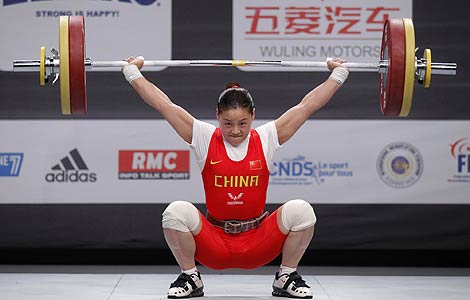Survey: APEC region has bright prospects
Updated: 2011-11-12 12:54
By Zhang Yuwei (China Daily)
|
|||||||||
HONOLULU — As leaders from the 21 members of the Asia-Pacific region gathered in Hawaii for the Asia-Pacific Economic Cooperation summit, more than 600 business executives presented predictions about what will happen to the region’s economy in the near future.
PwC surveyed more than 320 Asia-Pacific CEOs in 26 countries and regions from July to September, asking them questions about trade barriers, trade within the region, the increasing competition for talented workers and the effects of technological innovations.
More than 50 percent of them said they are "very confident" their companies will bring in higher revenues during the next three to five years — which is a greater percentage than results of a survey in 2010.
The findings were released at the Asia-Pacific Economic Cooperation CEO Summit.
The survey showed that nearly a third of the CEOs said the weak US recovery had affected their companies "to a great extent", and 17 percent said the economic situation in Europe has had a similar effect.
"Asia has a better outlook in terms of investment opportunities, compared with the US and Europe, in the next three to five years, especially with what is going on in Europe right now,"said John Chen, CEO and president of Sybase.
"Doing business in domestic Asian markets is quickly becoming the main avenue for growth in the (Asia- Pacific Economic Cooperation) economies,"said Dennis Nally, chairman of PwC International.
The survey also suggested that CEOs in the region think their economies will eventually go from being "produceronly" to being "producer-andconsumer" markets.
Nally said the change will not occur without the existence of deeper capital markets, eK cient supply and distribution channels, regulations that have been made more consistent and a decrease in corruption.
China remains the most important wealth generator for international companies, said Shaun Rein, author of the book The End of Cheap China, who also heads a market research firm in Shanghai.
"They need to look at selling into China rather than just producing there," Rein said.
The survey does not just paint a rosy picture of the Asian and Chinese markets. It also says greater pressures are coming from issues related to trade, innovation and talent.
Considering the next five to 10 years, Donald M.F. Lu, chairman of the Shanghai Pharmaceutical Holding Co, said, "changes in organizational and business models brought about by innovation will play an important role in determining whether the Asia Pacific region will inE uence the global economy."











